Emphysema is a chronic lung condition that causes shortness of breath and affects millions of people worldwide. Traditional treatments primarily aim at relieving symptoms but do not address the underlying damage to lung tissue.
This is where stem cell therapy comes in as a beacon of hope. By leveraging the body's natural repair mechanisms, stem cells have the potential to regenerate damaged lung tissue, offering a more targeted and effective treatment option.
In this article, we'll explore what emphysema is, how stem cell therapy works, and the current state of research in this exciting medical frontier. Whether you're affected by emphysema or simply interested in cutting-edge therapies, this read promises to be both informative and intriguing.
- Understanding Emphysema
- What is Stem Cell Therapy?
- How Stem Cells Help in Emphysema
- Current Research and Future Prospects
Understanding Emphysema
Emphysema is a type of chronic obstructive pulmonary disease (COPD) that primarily affects the air sacs in the lungs, known as alveoli. These alveoli gradually become damaged or destroyed, leading to reduced oxygen exchange in the bloodstream. This can result in every breath feeling like a struggle, making everyday activities more challenging.
One of the major causes of emphysema is smoking. Cigarette smoke damages the lung tissues, leading to inflammation and eventually the breakdown of the walls of the alveoli. However, it's not just smokers who are at risk. Long-term exposure to air pollution, chemical fumes, and dust can also contribute to the development of emphysema.
Symptoms often go unnoticed in the early stages. It is only when the disease has progressed that people start experiencing severe shortness of breath, persistent cough, and wheezing. This is why it is sometimes diagnosed late, making effective treatment options crucial.
The progression of emphysema can vary from person to person. While some might experience a slow decline, others could have a rapid deterioration of lung function. This variability makes it essential for a tailored treatment approach for each individual to manage the condition effectively.
Conventional treatments typically involve smoking cessation, bronchodilators to open up airways, and steroids to reduce inflammation. While these treatments help manage symptoms, they do not repair the damaged lung tissue. This limitation has led to growing interest in alternative therapies like stem cell therapy which hold the promise of regenerating lung tissue and restoring some lung function.
According to the American Lung Association, COPD, which includes emphysema, is the third leading cause of death in the United States. This statistic underscores the urgent need for innovative treatments and interventions.
Understanding the underlying mechanisms of emphysema is critical. The breakdown of alveoli leads to fewer and larger air sacs, which reduces the surface area for gas exchange. This affects oxygen levels in the blood and can lead to symptoms like fatigue and weight loss. Additionally, the lungs lose their elasticity, making it harder for them to expel air, which causes the characteristic difficulty in breathing seen in emphysema patients.
In recent years, research has provided new insights into the genetic factors that might predispose someone to develop emphysema. For instance, alpha-1 antitrypsin deficiency is a genetic condition that affects the protein protecting the lungs and liver from damage, putting individuals at higher risk of developing emphysema, even without exposure to risk factors like smoking.
With this comprehensive understanding of emphysema, the importance of exploring new treatment avenues becomes clear. Stem cell therapy, by focusing on the root cause of lung tissue damage, offers a compelling avenue for potentially reversing the effects of this debilitating disease.
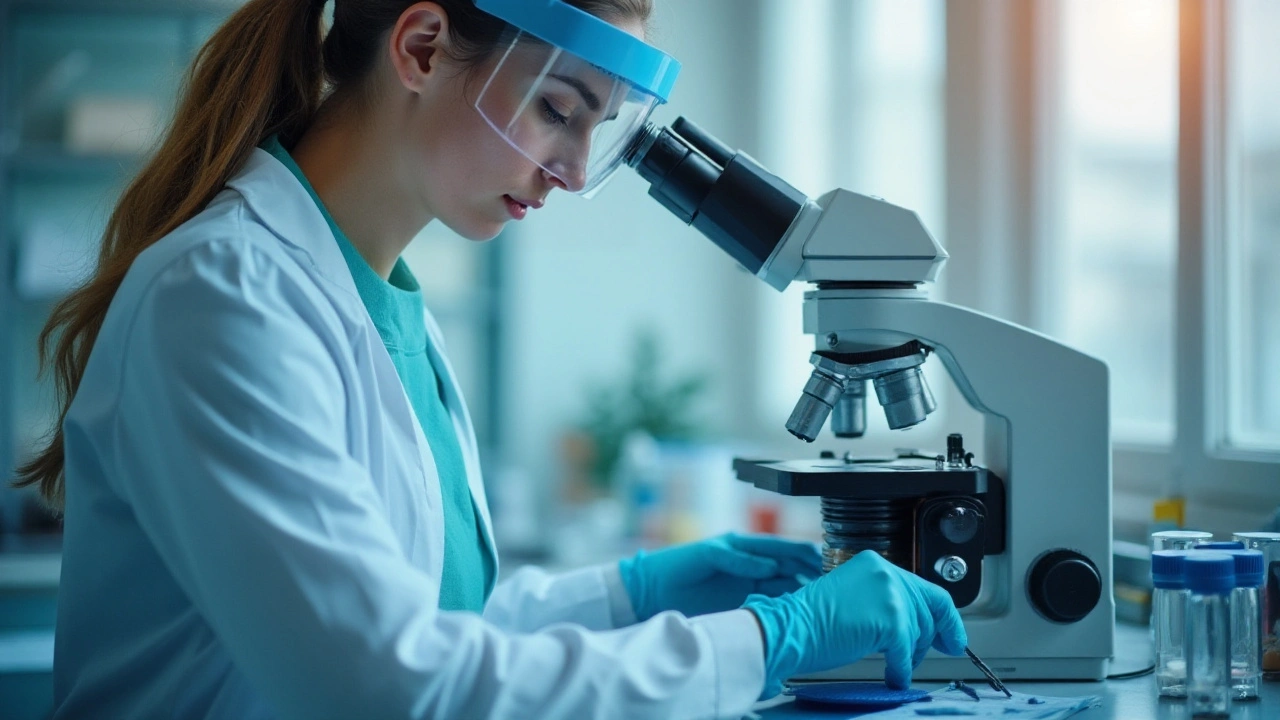
What is Stem Cell Therapy?
Stem cell therapy is a cutting-edge medical treatment that utilizes stem cells to repair, replace, or regenerate damaged tissues in the body. Stem cells are unique in their ability to differentiate into various types of cells, making them extremely versatile. These cells can be derived from different sources, most commonly bone marrow, adipose (fat) tissue, and umbilical cord blood.
One of the most promising aspects of stem cell therapy is its potential in treating chronic conditions, such as emphysema. Unlike traditional treatments that target symptoms, stem cell therapy aims to address the root cause by regenerating damaged lung tissue. This could potentially lead to improved lung function and quality of life for patients. The therapy generally involves harvesting stem cells from a donor or the patient, processing them in a laboratory, and then injecting them into the damaged area, where they can stimulate the body's natural healing process.
Types of Stem Cells
There are several different types of stem cells, each with unique capabilities. Embryonic stem cells are derived from early-stage embryos and possess the highest potential for differentiation. However, their use is often limited due to ethical concerns. Adult stem cells, such as those found in bone marrow and adipose tissue, are more commonly used and hold significant promise for therapeutic applications. Induced pluripotent stem cells (iPSCs) are adult cells genetically reprogrammed to an embryonic stem cell-like state. These iPSCs have shown potential in a variety of medical research areas, including regenerative medicine and drug development.
According to the National Institutes of Health (NIH), stem cell research has opened new avenues in understanding how diseases develop and finding more effective ways to treat them. They state, "Stem cell research holds the promise of regenerative medicine, potentially offering a targeted approach to healing damaged tissues without relying solely on symptomatic treatments."
"Stem cell research holds the promise of regenerative medicine, potentially offering a targeted approach to healing damaged tissues without relying solely on symptomatic treatments." — National Institutes of Health (NIH)
Despite its potential, stem cell therapy is not without challenges. Issues such as cell compatibility, immune rejection, and potential tumor formation are areas of active research. Scientists are continuously working to develop safer and more effective methods to harness the power of stem cells for therapeutic use.
Clinical Applications and Ongoing Research
Several clinical trials are currently underway to explore the efficacy of stem cell therapy in treating various forms of lung disease, including emphysema. These trials aim to understand the optimal cell types, dosages, and delivery methods to achieve the best outcomes. Early results have been promising, with some patients experiencing significant improvements in lung function and overall health.
The potential of stem cell therapy to treat emphysema and other lung diseases is undeniably exciting. As research progresses, it may unlock new possibilities for those suffering from chronic respiratory conditions, offering hope for a future where the disease's impact can be significantly mitigated or even reversed.

How Stem Cells Help in Emphysema
Emphysema primarily results from the damage to the air sacs in the lungs, leading to reduced oxygen exchange. This damage is often caused by smoking, pollution, or other irritants that break down the lung's elasticity. It's a progressive disease, and once the lung tissue is damaged, it doesn't regenerate easily.
This is where stem cell therapy shows exceptional promise. Stem cells are unique in their ability to transform into different cell types, which makes them incredibly valuable for regenerating damaged tissues. For individuals suffering from emphysema, stem cells can potentially grow into healthy lung cells, effectively 'repairing' the damaged areas.
One of the fascinating aspects of stem cells is their ability to home in on damaged tissue. When introduced into the body, these cells migrate to areas of injury or inflammation. Once there, they begin the process of transformation and repair. This ability is critical for emphysema patients, whose lung tissues have suffered extensive damage.
According to a study published in the American Journal of Respiratory and Critical Care Medicine, "Stem cell therapy offers a beacon of hope where traditional therapies have failed."
Stem cell therapy is usually administered through minimally invasive techniques. Often, stem cells can be harvested from the patient's own body—commonly from bone marrow or fat tissue. This autologous approach reduces the risk of rejection and other complications. Once harvested, these cells are processed and then reintroduced into the patient's lungs.
Recent research has shown that stem cells also possess anti-inflammatory properties. This is particularly significant for emphysema patients, as chronic inflammation contributes significantly to the disease's progression. By reducing inflammation, stem cell therapy can help slow down the deterioration of lung function.
The benefits of stem cell treatment for emphysema do not stop at tissue regeneration. There's growing evidence that it improves overall lung function, reduces the need for supplementary oxygen, and enhances the quality of life. While long-term studies are still needed to validate these findings definitively, initial results are promising enough to offer new hope.
One remarkable case involves a patient who, after being treated with stem cells, reported a significant improvement in breathing capacity and a reduced requirement for external oxygen supplementation. Such anecdotal evidence supports the growing scientific consensus about the efficacy of this treatment.
The potential for regenerative medicine to treat emphysema opens up new avenues for research and treatment protocols. Future studies aim to refine these techniques further, assess the long-term benefits, and explore the possibilities of combining stem cell therapy with other treatments for even more effective management of emphysema.
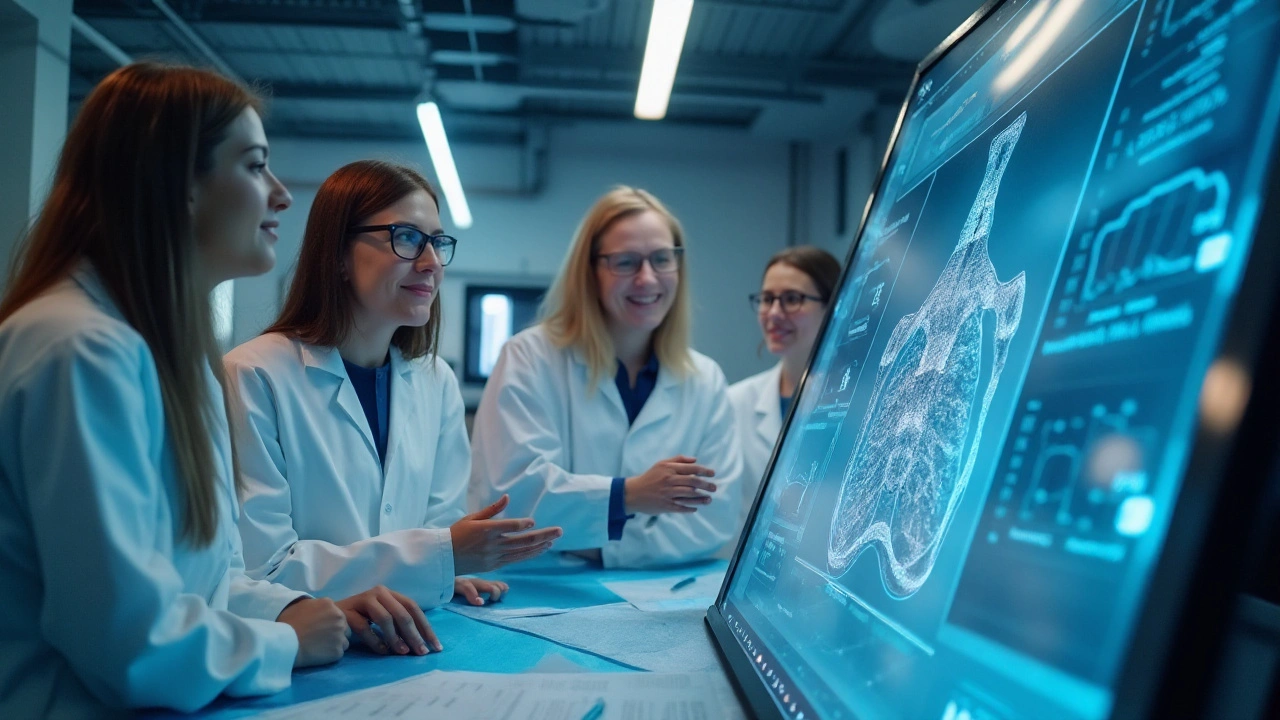
Current Research and Future Prospects
The realm of stem cell therapy for emphysema is not just at the doorstep; it's stepping inside with noticeable advancements. Over the last few years, multiple clinical trials and studies have highlighted the potential of this treatment to change lives. A notable development came from a phase II clinical study, where researchers observed that patients receiving autologous stem cell transplants showed marked improvement in lung function and quality of life. This did not just halt the progress of the disease but in some cases, reversed some of the damage.
One exciting aspect is the adaptability of stem cells. They can potentially differentiate into various types of lung cells, promoting the repair and regeneration of damaged tissues. This capability could lead to personalized treatment plans tailored to the specific needs of individual patients. It’s not pie in the sky; it’s happening now, thanks to ongoing research efforts.
Dr. Larson from the Lung Institute highlights, "This approach is groundbreaking because we’re not just treating symptoms, but addressing the root cause of tissue damage." This sentiment echoes the optimism among researchers and patients alike. According to the NIH, nearly 20 trials are currently investigating the efficacy and safety of stem cell therapies for various stages of emphysema.
Regenerative medicine is a fast-moving field, with stem cell applications extending into gene editing and bioengineering. Imagine a future where we can replicate lung tissue in a lab, using stem cells to fix genetic defects even before they manifest into chronic conditions. It's a vision that's moving closer to reality. For instance, research from the University of North Carolina has shown that bioengineered lung tissue using patient-specific stem cells might be a viable option within the next decade.
Despite these advancements, we’re still in early days. There remain many unanswered questions about the long-term effects and potential risks of stem cell therapy. Issues like immune rejection, the high cost of treatment, and ethical debates are ongoing. It is crucial to address these challenges with robust research and clinical trials. Funding and support from both public and private sectors will be vital in pushing this promising field forward.
The future of emphysema treatment through stem cell therapy undeniably shows promise. It’s not hard to imagine a world where inhalers and oxygen therapy become a thing of the past. As research progresses, the collective hope is that stem cells will offer not just a stopgap for symptoms but a cure. With each scientific paper and clinical trial, we edge closer to this reality, bringing renewed hope to millions suffering from this debilitating condition.


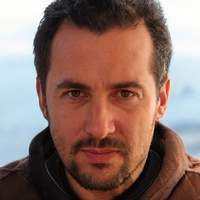

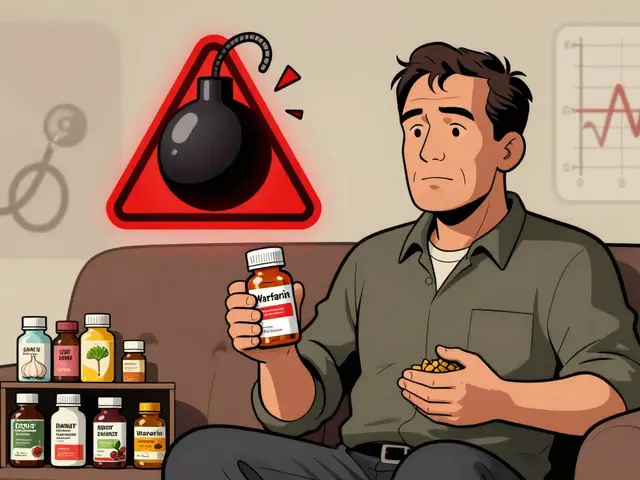



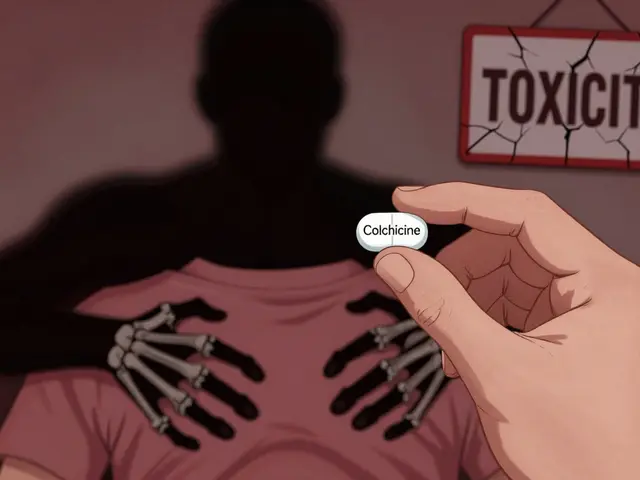


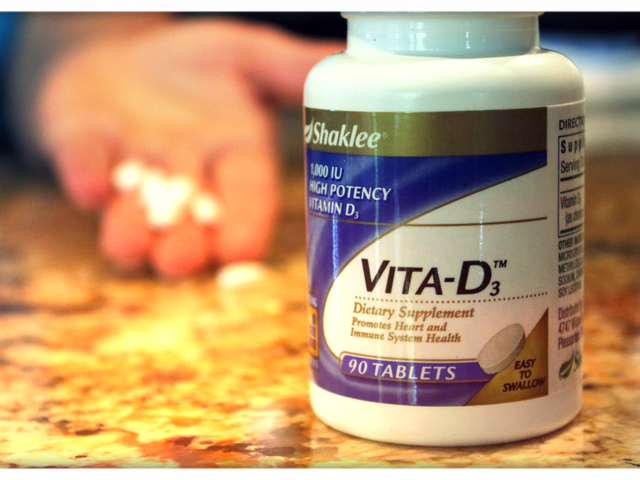

20 Comments
I've seen firsthand how emphysema eats away at someone's life. My dad was on oxygen 24/7 for five years before he passed. The idea that we might actually repair the damage instead of just managing it gives me chills. Not hype-real hope.
Stem cells are the new snake oil. They've been promising miracles for 20 years and still can't fix a broken knee. Now they're gonna heal lungs? Wake up. Big Pharma is funding this so they can charge $500k per treatment and call it 'personalized medicine.'
EVERYTHING IS A LIE!!! STEM CELLS ARE A GOVERNMENT WEAPON TO CONTROL THE ELDERLY!!! THEY'RE USING YOUR LUNGS AS A BATTERY!!!
My cousin got this treatment in Tijuana and now he's running marathons 😍 I mean, sure, the clinic was in a basement with a sign that said 'Stem Cells 4 Life' but the guy had a lab coat and a golden stethoscope so... 🤷♂️✨ #MiracleCure #NoMoreOxygen
This is why India doesn't need Western medicine. We've had Ayurveda for 5000 years. You think stem cells are new? We've been balancing doshas since the Vedas. This is just science playing catch-up while the West spends billions chasing shadows.
Okay but what if the stem cells are secretly programmed by Big Tobacco to make you addicted to breathing? I read a Reddit thread where someone said the cells glow blue under UV light and that’s not normal. Someone’s watching. Someone’s always watching.
Interesting. My uncle in Delhi uses herbs and breathing exercises. He’s 78 and still walks to the market. Maybe we don’t need fancy stuff. Simple things work too.
Let’s be real. The real cure for emphysema is not smoking. Everything else is just rearranging deck chairs on the Titanic. You want to fix lungs? Stop burning them. Problem solved. No magic cells needed. Just willpower.
THIS IS THE FUTURE. I CRIED WHEN I READ THIS. If even one person gets their life back because of this, it’s worth every dollar, every hour, every failed trial. We’re not just treating disease-we’re restoring dignity.
Regeneration implies order. But biology is chaos. Cells don’t follow blueprints. They adapt, mutate, die. The idea that we can engineer tissue repair like assembling IKEA furniture is… poetic. But dangerous. We don’t control nature. We negotiate with it.
While the theoretical framework for mesenchymal stem cell-mediated alveolar regeneration is compelling, the absence of longitudinal, double-blind, placebo-controlled trials with statistically significant endpoints renders the current evidence inconclusive. Extrapolating clinical outcomes from anecdotal case reports constitutes a logical fallacy.
they said the same thing about vaccines and now look at us. stem cells are just the next phase of the elite’s control plan. they want you dependent on expensive treatments so you can’t afford to question the system. and don’t even get me started on how they’re harvesting cells from poor people in nigeria and india without consent. it’s slavery with a lab coat.
I think this is beautiful. But why aren’t we talking about prevention? Why aren’t we banning vaping in public spaces? Why are we so focused on fixing damage instead of stopping it? I just feel… sad that we wait until people are broken before we try to fix them.
Stem cell therapy? In Nigeria we don’t need fancy science. We have traditional healers who use leaves from the baobab tree and chants from our ancestors. The white man thinks he invented healing. We’ve been doing it since before your grandparents were born.
The essence of healing lies not in the manipulation of cellular structures but in the restoration of balance between organism and environment. To intervene mechanically in the body’s innate wisdom is to misunderstand the fundamental nature of life itself. The lung does not require repair-it requires harmony.
They told us the same thing about chemotherapy. They told us the same thing about insulin. They told us the same thing about antibiotics. Now they’re telling us about stem cells. And every time, the same people profit. Every time, the same people die. And every time, we fall for it again because we’re too scared to die quietly.
What if the real miracle isn’t the cells? What if it’s the fact that we finally care enough to try? Maybe it doesn’t matter if it works perfectly. Maybe it matters that we’re still trying. That we haven’t given up.
I’m skeptical but open. I’ve seen too many 'miracle cures' fade into nothing. But this feels different. The science is solid, the trials are rigorous, and the patients are real. Let’s not get ahead of ourselves-but let’s also not ignore what’s right in front of us.
Thank you for sharing this. My mother has emphysema. I’ve been praying for something like this. I know it’s early, but I’m holding on to this hope. I’m going to share this with her tonight. She deserves to feel this kind of hope.
USA is falling behind. China is already doing this in state hospitals. We’re still debating ethics while they’re curing people. Wake up, America. You’re losing the future.